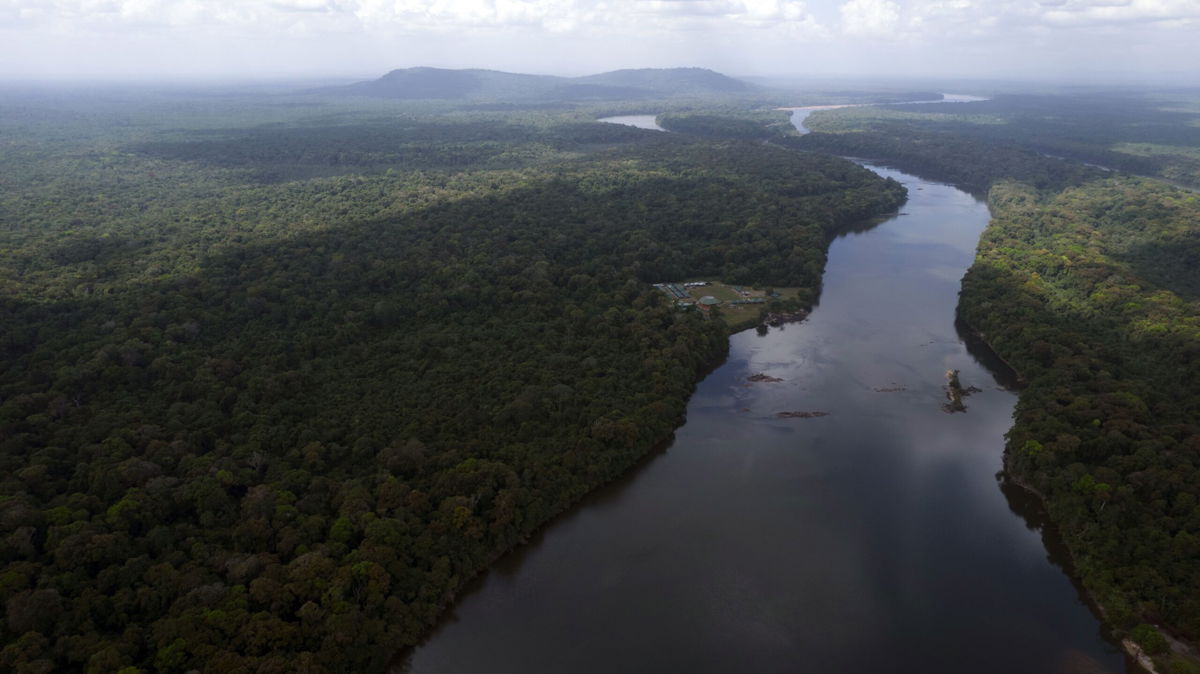Venezuela and Guyana agree to high-level meeting amid annexation fears

A voter casts a ballot at a polling station in Caracas
(CNN) — Venezuela and Guyana have agreed to a high-level meeting over the status of the disputed and oil-rich Essequibo region, following a flurry of diplomacy involving leaders of both countries as well as Brazilian president Luiz Inacio Lula da Silva, St. Vincent and Grenadines Prime Minister Ralph Gonsalves, and United Nations Secretary General António Guterres.
Following a nationwide referendum last week, the Venezuelan government has threatened to move forward with plans to annex the densely-forested Essequibo region, which is roughly the size of Floria and makes up about two-thirds of Guyana’s territory. Venezuela has long insisted that it has a historical claim to the region, which Guyana rejects. Current borders were set in a 1899 ruling by international arbitrators.
The proposed meeting would take place on December 14 in St. Vincent and Grenadines, according to a letter shared with CNN en Español that was sent to both presidents by Gonsalves. The letter describes an “urgent need to de-escalate the conflict and institute an appropriate dialogue, face-to-face.”
St. Vincent and the Grenadines also said that Brazil’s Lula would be invited to attend the meeting. Brazil shares extensive borders with both countries and with the disputed territory.
Both Venezuela’s President Nicolas Maduro and Guyana’s President Irfaan Ali have agreed in principle to a meeting, but not yet confirmed the date.
“Venezuela expresses its satisfaction and accepts the call to meet with approval and commitment,” read a statement published by Venezuela’s Foreign Ministry on Saturday, adding that it ratifies the “historical position on the unquestionable sovereign rights of Venezuela” over the Essequibo region.
Guyana’s government said on social media that Ali had accepted to meet, but “reiterated that Guyana’s land boundary is not up for discussion, as it is currently before the International Court of Justice (ICJ) and, when adjudicated, will be fully respected by Guyana.”
“The President, on numerous occasions, has made it explicitly clear that the case before the ICJ will not be an issue for bilateral discussions,” the Guyanese statement added.
UN chief Guterres has previously warned that the stand-off over Essequibo should be settled through “solely peaceful means,” and urged both countries to work with the International Court of Justice. Rosemary Di Carlo, UN undersecretary for peacebuilding and political affairs, briefed the powerful Security Council about the situation on December 8.
The Hague-based ICJ has been reviewing the territorial dispute since 2018 and will hold a trial in the spring, following decades of failed negotiations between the two countries through the UN. It ruled last month that “Venezuela shall refrain from taking any action which would modify the situation that currently prevails in the territory in dispute.” However, Venezuela does not recognize the court’s jurisdiction on the issue.
Gonsalves’ letters to both presidents says he’s “aware” of each country’s posture and that given where they stand it is “preferable for leaders of nations to speak to each other calmly, respectfully, and with the patience, in order to avoid an escalation into threats or the use of force.”
“Time is of the essence,” reads the letter. “Let us all resolve to make this historic gathering a successful one. So much is at stake for our Caribbean and Latin American civilization.”
Reporting contributed by CNN’s Caitlin Hu in New York.
The-CNN-Wire
™ & © 2023 Cable News Network, Inc., a Warner Bros. Discovery Company. All rights reserved.